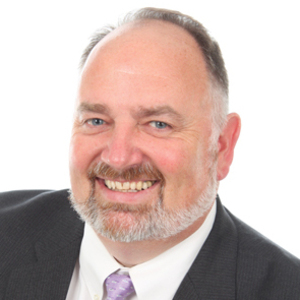Leave light on for ethanol consumers

September 11, 2015
BY Ron Lamberty
Don't stop me if you've heard this one. It’s a marketing story. Really.
A moth goes into a podiatrist’s office.
The podiatrist greets him and asks, “How can I help you?”
“Geez, Doc, I don't know if you can help me,” the moth answers. “I don't know if anyone can help me …”
“Well, what seems to be the problem?” the podiatrist asks. “Why don't we just start with that?”
“That’s the problem, Doc. I don't know. I feel like I don't know anything. I'm lost. I've got no confidence,” the moth explains. “I got fired from my job, and actually, I think my boss was right to fire me, because I didn't know what I was doing there. My wife and I are constantly fighting, I’m worried she’s going to leave me …”
The podiatrist, feeling uncomfortable, tries to interrupt, “Oh, sir, I understand, but …”
“… and frankly, I'd leave me, too. I mean, she’s tried to be supportive, but she’s been so busy with the kids. And those kids, don't even get me started on the kids. I really have no control there. But I get it. It's because …”
“Sir,” the podiatrist interrupts, this time more forcefully, “it’s clear that you need help, but you need to talk to a psychologist. I'm a podiatrist.”
“See? I can't even get that right. Sorry I wasted your time,” the moth replied.
“Wait!” the podiatrist said, “Before you go, if you don't mind, can I ask you how you found us? Was it our ads? TV, radio? Our monster truck sponsorship, ‘Big Foot,’ clever, right? Or was it Twitter? Our Facebook page? Instagram? What was it that brought you in here?”
“Dude. I'm a moth,” he answered. “Your light was on.”
There are a number of lessons one could draw from this story. The most obvious is, despite our best efforts to educate inform and convince people to use our product, sometimes they buy it anyway. We want to believe drivers are inexorably drawn to the “light” of clean, high-octane, renewable, American ethanol, and some are. In reality, however, the majority of them are unavoidably drawn—begrudgingly—to the nearest gas station with the lowest price, by a blinking “low fuel” light on their dashboard.
Ethanol blends are most often the lowest-priced options at the pump, so whether they like ethanol or not, they’re buying it. And isn’t that what we really want? That’s not to say we shouldn’t try to educate, inform, and convince people to use ethanol, we have to. Because some people—not very many, but some—want to know what this stuff is that they’re putting in their car. We can’t concede that job to the same serial misinformers who are continually misinforming elected officials, media outlets and the public in general.
Just try to look past the fact that most people don’t love ethanol, or even care about it. They use it because they need gas, and ethanol is in there. If it helps, they don’t love gas, either. Never have, never will. Oil companies have spent billions advertising premium gasoline over the years, and yet annual sales don’t come anywhere close to the amounts that would be sold if people who own premium only cars (it’s on the gas cap and in the owners’ manual) actually put premium in them a fraction of the time. Even requiring branded stations to sell premium for the last 30 years didn’t boost sales into the high single-digit percentages. Premium sales are up recently, because the change in base fuel requires stations to blend some premium with it to offer any gasoline without ethanol, or to sell any fuel with an octane higher than 87.
Maybe people don’t buy ethanol for the reasons we would like them to buy it. But they buy it. And when we turn the lights on at more stations offering higher blends, they’ll be drawn to it. Like moths to a podiatrist.
Author: Ron Lamberty
Senior Vice President
American Coalition for Ethanol
605-334-3381
rlamberty@ethanol.org
Advertisement
Advertisement
Advertisement
Advertisement
Related Stories
The European Commission on July 18 announced its investigation into biodiesel imports from China is now complete and did not confirm the existence of fraud. The commission will take action, however, to address some systemic weaknesses it identified.
Kintetsu World Express Inc. has signed an additional agreement with Hong Kong, China-based Cathay Pacific Airways for the use of sustainable aviation fuel (SAF). The agreement expands a three-year partnership between the two companies.
Broco Energy on July 17 announced a new partnership with the Massachusetts Port Authority (Massport) to deliver and transition Massport's fuel tanks to renewable diesel across its various facilities.
Shell Aviation, Accenture, and Amex GBT on July 10 announced Avelia is in the process of evolving to an industry solution with independent data hosting and a multi-supplier model helping users access the GHG benefits of SAF.
The U.S EPA on July 17 released data showing more than 1.9 billion RINs were generated under the RFS during June, down 11% when compared to the same month of last year. Total RIN generation for the first half of 2025 reached 11.17 billion.
Upcoming Events










